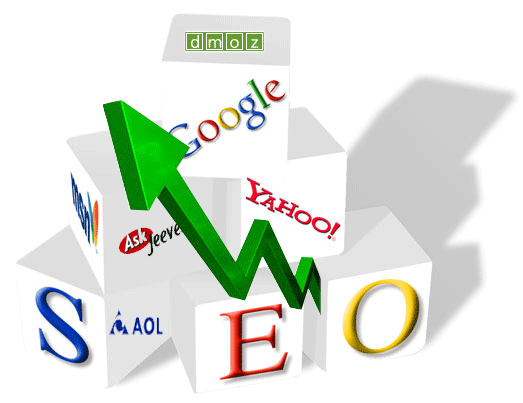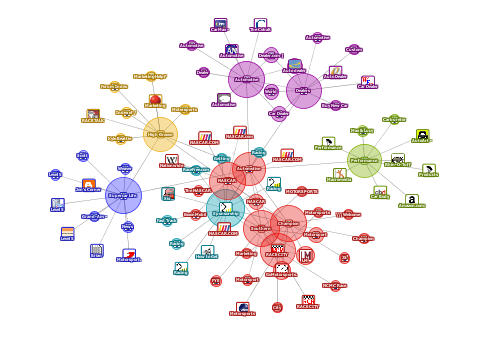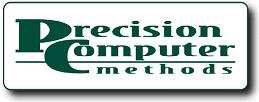____________________________________________________________
Tags: Customer Engagement, SEO, Web traffic, Email marketing, drip marketing, autoresponder
SEO SOS #17 - PPC Advertising vs. Organic Positioning
Posted by Peter Heinicke on Sat, Aug 25, 2012 @ 10:48 PM
Much of what our lessons have been geared toward focus on getting your website found by the search engines so that your potential audience can find you. Pay-per-click (PPC) advertising has been addressed before, but I wanted to make sure that regardless of how well your website shows up in search engine results pages (SERP), you may still want to keep some basic PPC in place.
PPC Advertising vs. Organic Positioning - SEO SOS #17
I recently did a search on a company product that was very specific. So specific that the company showed up three times in the sponsored links - positions one, two and three - and was in the first two positions on the left side of the SERP, known as organic positioning. Since my search was a product specific search, I think that paying for PPC advertising on the specific product is probably not money well-spent. My suggestion is that the company should remove their PPC ads for the specific product name and only advertise for the product purpose or industry keywords related to their product.
So how does this advice translate to your website? If you are running PPC campaigns, create ads that touch on the need for your product or for the problem that your product solves. If you run an ad with your specific product name or your company name as the keyword for the ad, watch carefully when you do a search on your product or company name where you come up organically. Initially, you may not show up at all, so these ads are very ppropriate.
However, you should be testing frequently for results on your ad campaigns to see where you show up on a keyword search both for sponsored and for organic results. Once your product name and company name begin to enjoy some basic branding, you will want to move your PPC ads into product type ads instead of product name ads so you are not spending money on click-throughs that you can get for free.
Does this mean that you will never do PPC campaigns once you are positioning well organically? If we could trust that what Google does on its three or four major algorithm updates each year to be logical and predictable, then this would be the case. However, for reasons sometimes unfathomable by mankind, the Google updates often drop your website from good positioning to obscure at the most inopportune time. It is important for you to keep a close watch on your PPC campaigns and the SERP for your targeted keywords. Be ready to shift in and out of PPC campaigns at a moment's notice. It is quite easy to organize your campaigns in such a way that you can simply pause a campaign when it isn't working and then resume it when you need to be back in the sponsored links because your organic positioning has changed.
So the moral of the story is to pay attention to your positioning at all times. At the very least, a couple of times a week you need to run a Google search on your main keywords to be sure that you are showing up where you expect you should. If you find yourself in the enviable position of having top ranking on both sponsored links and organically, then pause your PPC campaign until it is needed again. But if you drop from these top positions, then
simply resume your PPC ads to fill in the gap until you are organically dominating your keywords again.
Copyright (c) 2012 TAO Consultants, Inc. All rights reserved.
_____________________________
Chesa Keane has been designing and developing web sites with an eye toward search engine optimization and traffic generation since 1995. TAO Consultants offers online web and SEO courses to help you make the most of your web business and investment at the www.computergoddess.com website.
_____________________________
Your homework this week is to check your website for positioning. If it still doesn't come up organically posistioned well, then keep your PPC advertising in place; in fact, review it to make sure that it is being posted under sponsored links in a favorable position. If your site does come up well organically, consider revising your PPC campaigns so you aren't spending money for something you can get for free with your good organic results.
Tags: SEO | organic search | Paid Search, Web traffic, PPC, Pay-Per-Click, HubSpot Tips
There are several directories that you can also add your links to which will give you a certain amount of exposure. One of the easiest and most reasonably priced linking websites is Strongest Links (http://www.strongestlinks.com ) and offers a free 30-day trial period with full functionality. This website will give you an updated list of directories, the price they charge (if any) and how valuable the directory is as shown by various statistics.
Tags: Web traffic, Website Traffic, SEO Authority, Web Optimization, link building, page rank
The Internet would not exist if it weren't for keywords. But the second most important element of the Internet involves linking of websites. Think of it -- its called the World Wide Web because all websites are connected to other sites in some way. One website leads to another which leads to another which leads to another.
There is a double-bind involved when you entertain linking to other websites. No one wants to send people away from their site by linking to another website. However, you wont get any links to your website if you dont create any links from your website to others. It is important that search engines see that your website is connected to the rest of the Internet by seeing links coming to your site from other locations.
Tags: Web traffic, Website Traffic, SEO Authority, Web Optimization, link building, page rank
Let's look at the rules of article publishing for creating and generating web traffic to your website.
Article Title
You want to use a title that generates interest as well as utilizes your main keyword. Time spent on coming up with a good title is time well spent. You are competing with a lot of other articles, so you want to stand out from jump. It is not always possible to come up with a title that is both interesting and contains your keywords. When you publish your article, you will be identifying the category. Therefore, it is sometimes more important to write acatchy title that does not contain your keywords than to incorporate your keywords in a dull title. As an example, I wrote an article about meditation called "The Mind is Like a Frisky Monkey," that has spread virally very well across the Internet.Even though it does not contain the keyword, meditation, it has
done very well and is published on over 550 unique websites. Each time the article appears it contains the resource box that leads back to my meditation websites.
Article Length
Ideally, your article will be from 400 to 800 words in length. It will be keyword rich, of course, but be sure not to extend the length beyond 800 to 900 words. If the article is getting longer, break it into multiple parts and publish as part 1, part 2 and so on.Who Writes the Article?
Not everyone is comfortable with writing. If you have difficulty writing your own articles, the time involved may be too lengthy to make authoring your own articles practical. Consider a ghostwriter if this is the case. There are many outlets for ghostwriters including www.elance.com to www.rentacoder.com. You may want to engage these ghostwriters to write several articles for you that will become your property. You can then take these articles and break them into multiple articles or blog postings. A blog posting can be as small as 200 words and still be very effective.Precautions About Unique Content
There are several places where you can post your article: on your website, to several article directories, and to your blog. However, for every different location that you publish your article, you will want to change the article by at least 25%. This is not difficult to do; simply rearrange sentences, paragraphs andheadings. When you publish to an article directory, such as www.ezine.com, if your article becomes popular, it will be replicated over and over across the Internet. However, this is not a problem with duplicate content since you are not doing the re-publishing. Where duplicate content becomes a problem is when the content is duplicated throughout your web of influence. Your blog and your website are related to each other with the same links, names, and keyword content. So the rule of modifying your content by 25% relates to whatever and wherever you publish. The article that you post at the article
directory should also be different from the article published on your website because you are leading people back to your website via your web link. You do not want the search engines to make this discovery of duplicate content on your website with articles that are published outside of your website. All other locations outside of your web world can be duplicates, just be sure not to publish an exact duplicate of an article on your website that you post to a directory.
How Often Should You Publish?
It is a good idea to set up a regular interval of publications, perhaps once every week or two if possible. However, if you do not have the time to do this, don't succumb to the temptation to spend one day publishing 10 articles to article websites. A barrage of article publishing is not as well received as one article every 10 days. Besides, the process of publishing an article can take a considerable amount of time without publishing software.How Do You Publish Articles?
One of the best tools available for publishing articles is a software program called Article Announcer . AA allows the writer to publish to multiple article directories and keeps track of what, when and where your articles have been published. It also allows you to prepare your articles and have someone else do the publishing with the free version, Article Announcer Lite. Otherwise, without this tool, you will have to sign up for various article sites, format your article according to their specs and slog through the process slowly. If you only want to publish to one or two sites, this is not difficult. However, you probablywant to publish to several article directories and Article Announcer works very well.
Formatting Your Articles
The article directory may or may not allow HTML formatting and may only allow simple text formatting with line length not to exceed 65 characters. You will want to format your article as a text article with 65-character lines for basic publishing. If the directory you are posting your article to does allow HMTL formatting, you should not use this option unless you are familiar with some basic HTML formatting codes. Plain text will work just fine if HTML is aproblem for you. Make the article accessible by not going overboard; that is, avoid bullets, italics, bold, etc. Remember you are trying to get your article picked up by directories and other websites looking for web content on your subject -- make it easy for them to do this. In addition, it will be easier for you
to publish your article and avoid non-text formatting codes if you write your article in WordPad or TextEdit or some other simple text format program. If you use Word, you will have to strip out all the special codes that Word uses to make your document look pretty to make it simple, vanilla text-formatted.
This lesson is a basic introduction to article publishing and if you should have any questions, please feel free to contact us for more information. There is a tremendous value to publishing articles; however, to do it right takes a little effort. But the payoff is great traffic generation. One of my articles was picked
up by a major article syndicator and that one day alone when it was published as a feature article increased my web traffic by 30 times! It does work with a little work.
Copyright (c) 2012 TAO Consultants, Inc. All rights reserved.
Reprinted by permission.
_____________________________
Chesa Keane has been designing and developing web sites with an eye toward search engine optimization and traffic generation since 1995. TAO Consultants offers online web and SEO courses to help you make the most of your web business and investment at the
www.computergoddess.com website.
Your homework this week is to look around your business and find articles that would be of interest to those looking for your products and services. If you want to get an idea of how these articles should look, do a Google search on Article Directory and look for articles related to your business.
Tags: Blogging, Blog, Article Publishing, Web traffic, Internet Marketing
One of the most important factors that affect the search engines indexing your web pages for search engine results pages (SERP) positioning and page rank is changing website content. If your pages are published but never updated or changed, you will never be ranked high enough to show up in the first few pages of a SERP.
Tags: SEO | organic search | Paid Search, targetted Marketing, SEO, Web traffic, Search Engine Optimatization, SERP, SEO Authority







